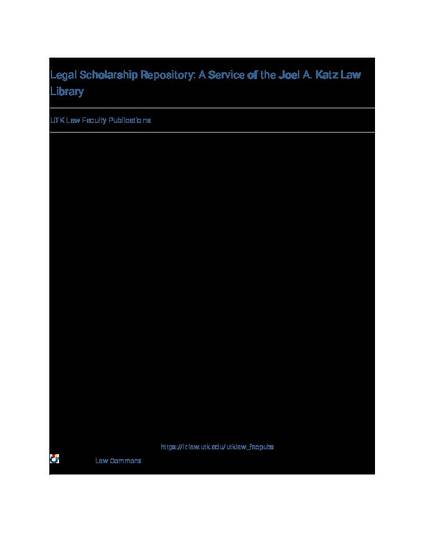
Article
Lessons from the Financial Crisis
Antitrust Law Journal
(2010)
Abstract
What lessons can we learn from the financial crisis concerning the issues of systemic risk, firms too big to fail, and the income inequality in the United States today?
In light of the public anger over the financial crisis and bailouts to firms deemed too big to fail, this Essay first addresses the issue of systemic risk posed by mergers generally and those in the financial services industries specifically. The federal government heard concerns in the 1990s about mega-mergers in the financial industry. The Department of Justice, for example, heard concerns that the Citibank-Travelers merger would create an institution too big to fail. But the government essentially discounted these concerns. This Essay argues that competition authorities must look beyond the mergers’ short-term impact on static price competition to better understand mergers’ potential long-run effects on the financial network’s health and stability.
As income inequality has increased over the past thirty years in the United States, this Essay discusses the political implications of concentrated economic power. The causes of income inequality, whether lax antitrust enforcement is a contributing factor, and whether income inequality can affect antitrust policy are all discussed.
Keywords
- Income Inequality,
- Antitrust,
- Innovation,
- Monopolies,
- Too Big to Fail,
- Financial Crisis,
- Optimal Deterrence Theory
Disciplines
Publication Date
2010
Citation Information
Maurice E Stucke. "Lessons from the Financial Crisis" Antitrust Law Journal Vol. 77 Iss. 1 (2010) p. 313 - 342 Available at: http://works.bepress.com/maurice_stucke/87/
